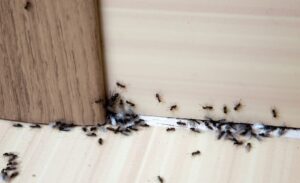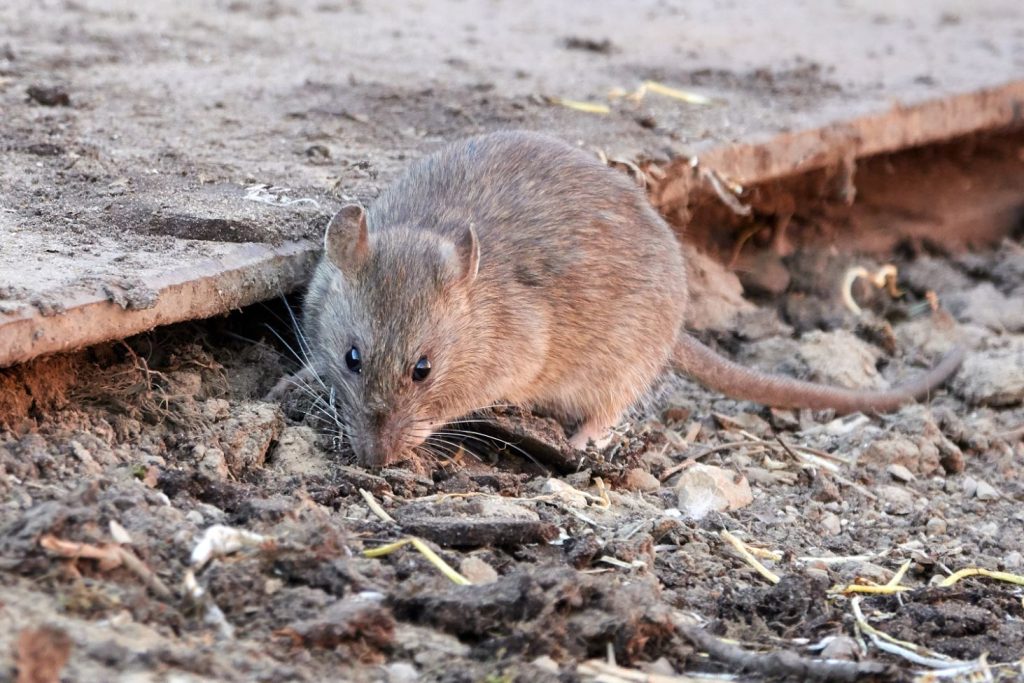Introduction
Rodents can be a real nuisance, infiltrating homes and businesses and multiplying quickly. They can cause damage to property and bring about health risks for humans.
Knowing how to prevent an infestation is the best way to avoid having to deal with one later. Rodents can squeeze through small cracks and crevices, so ensuring these are securely sealed can go a long way in prevention. Keeping food away from windows and doors, keeping grass and brush trimmed, and making sure all possible entry points into the home or business are blocked off are also important steps in preventing an infestation.
However, when rodents do start to take hold of a home or business it is important to act quickly in order to control the population numbers and prevent more damage. If you have any suspicions of a rodent infestation then you should contact a pest control specialist immediately for professional assistance.
In this blog post, we will look at everything you need to know about rodent infestations: signs of an infestation, how to prevent one from occurring in the first place, and how to treat one with pest control methods if necessary.
What Are Rodents and What Problems Do They Cause?
Rodents are mammals with oversized front teeth that never stop growing. They’re a nuisance because they reproduce quickly and can cause damage to your property and food supply. The most common rodents you’ll run into include Norway Rats, Roof Rats, House Mice, and Deer Mice.
The problems these little guys can cause include:
- gnawing on walls, wires, pipes, and other structural materials
- destroying food by eating it or contaminating it with their droppings or urine
- spreading fleas, mites, ticks, and other parasites from one infested area to another
- introducing diseases through their droppings
- causing huge amounts of damage during heavy infestations.
To reduce the likelihood of an infestation in your home or business, it’s essential to understand how to prevent rodents from entering and nesting in the first place.
What Attracts Rodents to Your Home?
Rodents are scavengers and opportunists, so they’ll take advantage of any openings to access food, water, and shelter—all of which can be found in your home. Some common ways rodents enter our homes include:
- Cracks in walls or foundations
- Gaps around windows and doors
- Unscreened vents
- Poorly sealed attics, basements, and crawl spaces
- Pet doors that are left open overnight
It’s also important to note that animals will usually come back to the same spot if it has been a successful food source for them in the past. This means that if you’ve had a rodent problem before, you should be extra vigilant when it comes to prevention.
The best way to stop rodents from entering your home is by removing any potential sources of food or shelter. This includes sealing off any entry points with steel wool or foam sealant, keeping your kitchen clean and clutter-free, making sure all food items are tightly sealed and caught promptly, regularly inspecting floor drains for evidence of activity, and using secure garbage cans with tight lids.
How to Prevent an Infestation of Rodents
Rodents are notoriously crafty creatures, but there are ways to keep them out of your home. The best way to make sure they stay away is to eliminate any potential food sources, fill all cracks and crevices with caulk, and double check all windows and doors for possible entry points.
Here are a few other tips you can use to prevent an infestation of rodents in your home:
- Store food correctly – Keep all food items stored in plastic or metal containers that are rodent proof, like sealed Tupperware or airtight canisters.
- Clean up messes – Make sure to clean up spills or crumbs quickly, as rodents can smell food from great distances.
- Seal off possible entry points – Make sure to inspect all areas for potential entrance points for rodents and seal them if found. This includes door sills and thresholds, window frames, holes in walls and foundations, etc.
- Keep outdoor areas clean – Make sure that any outdoor garbage cans have tight fitting lids and that compost piles are properly managed so as not to attract rodents.
- Utilize natural repellents – Plant mint around the perimeter of your home as rodents do not like the smell of it and tend to stay away from it.
By following these tips you should be able to prevent an infestation of rodents in your home before it happens!
How to Tell if You Have an Infestation of Rodents
Knowing how to tell if you have a rodent infestation is essential for avoiding a larger problem. The first place to check is your insulation, as mice and rats will often make nests in insulated walls and attics. If you notice any tear marks, droppings, or foul odors in your insulation, it’s likely that you have an infestation on your hands.
Additionally, rodents are nocturnal creatures, so keep an eye out for signs such as scampering noises at night or during the early hours of the morning. You may also notice small footprints in dusty areas and gnawed food packaging in your pantries and cupboards – these are all telltale signs of a rodent infestation.
Finally, chew marks on furniture or utility cables can also indicate that there’s a rodent problem in your home. Be sure to keep an eye out for these tell-tale signs when inspecting your home for any potential infestations.
Steps You Can Take to Treat a Rodent Infestation
It’s important to have a game plan for treating a rodent infestation once it has been identified. Here are some steps that you can take to ensure that these pests are removed from your home as soon as possible:
- Identify any possible entry points. Seal up any small openings or crevices around your home with caulk or wire mesh and make sure they are completely sealed all the way around.
- Call a professional pest control service if the infestation is large. A professional exterminator can help to identify both the source of the infestation and implement an effective extermination strategy.
- Utilize rodent bait stations in conjunction with traps to capture rodents both inside and outside of the home. Make sure that bait stations are placed in areas where there is no access by children or pets, and that they are securely fastened to avoid potential accidents or injuries from trapped animals escaping from them.
- Clean up any debris and droppings left behind by rodents, as these can be a breeding ground for larvae, bacteria and pathogens which can cause illnesses in humans if left unchecked.
- Finally, maintain regular inspections of your home’s exterior, paying special attention to areas around windows, doors, pipes and other potential entry points for rodents or other pests on a semi-annual basis. This will help you to remain vigilant in avoiding future infestations before they become established inside your home.
When to Seek Professional Pest Control Help for a Rodent Infestation
If you find yourself in the unfortunate situation of dealing with a rodent infestation, professional help may be an appropriate solution. It’s important to remember that treating a rodent infestation is not an easy job, and attempting to do it yourself is usually not recommended.
Pest control professionals are trained to identify the source of the infestation, determine what type of rodents are present, and recommend the best treatment plan for your specific situation. Furthermore, they have access to powerful tools, such as traps and pesticides, which can be dangerous if used incorrectly.
Here are some signs that it’s time to call a professional:
- You’re seeing more than one rodent in your home
- Rummaging in skip bins
- You have seen rodent droppings or tracks on a regular basis
- You smell something foul coming from in or around your home
- You hear strange noises coming from within your walls
When taking on any pest control issue, it’s important to remember that prevention is key. From sealing any cracks or crevices in your home’s exterior walls to keeping your kitchen and dining area clean and free of crumbs – these are all effective ways to keep rodents from entering your home in the first place.
In conclusion, rodent infestations are a serious issue and should not be taken lightly. Proper preventative measures must be taken to make sure that rodents do not enter your home, and if they do, proper treatment must be taken to ensure they are eliminated before they can cause significant damage. Prevention is key, so make sure to take the necessary steps to keep rodents out of your home, such as keeping your living space well maintained, sealing any entry points, and properly disposing of food waste. If you do find yourself facing a rodent infestation, contact a professional pest control service right away to get rid of the problem and restore your home to its former state.








